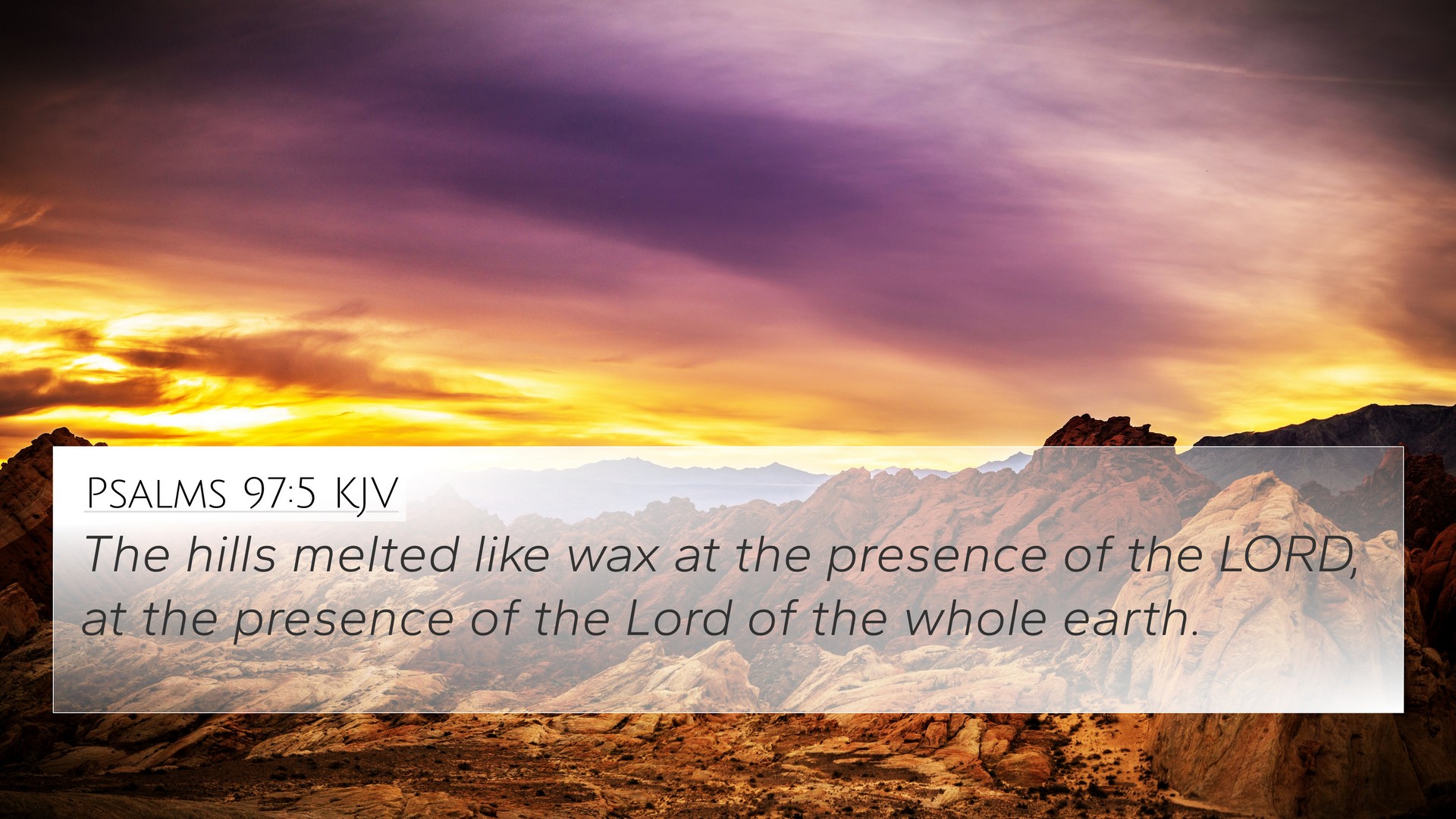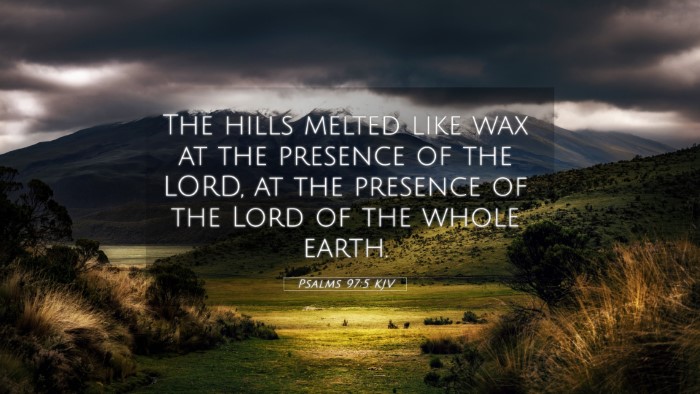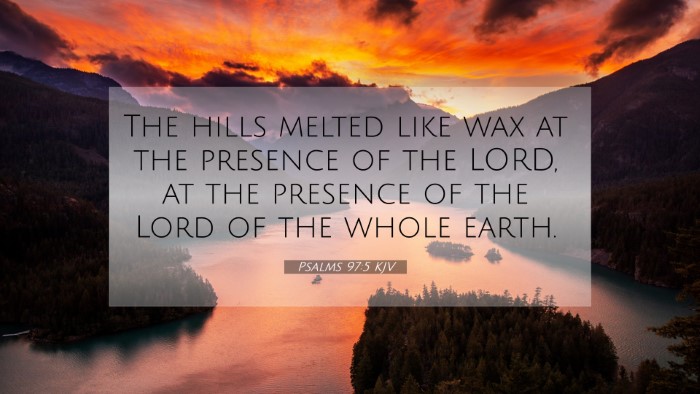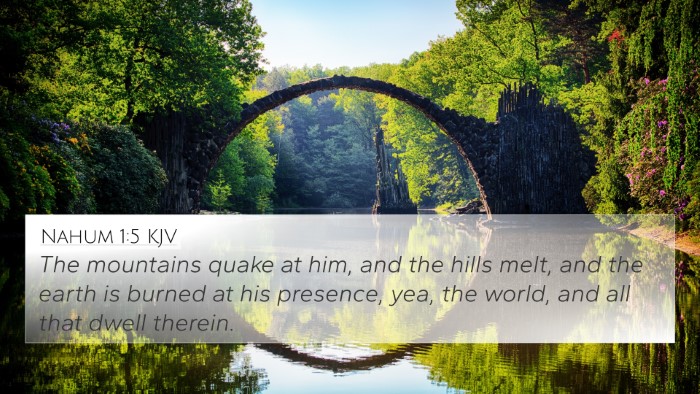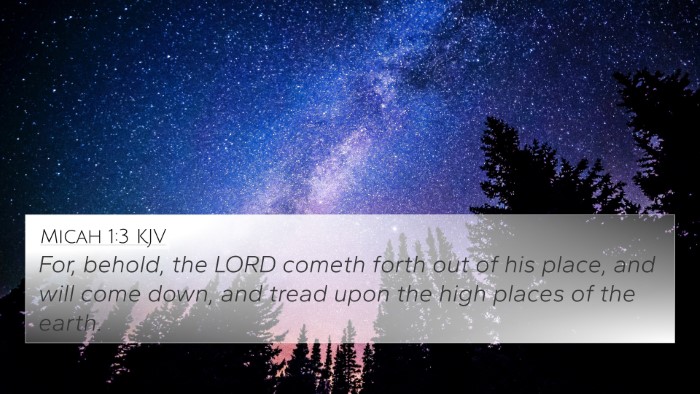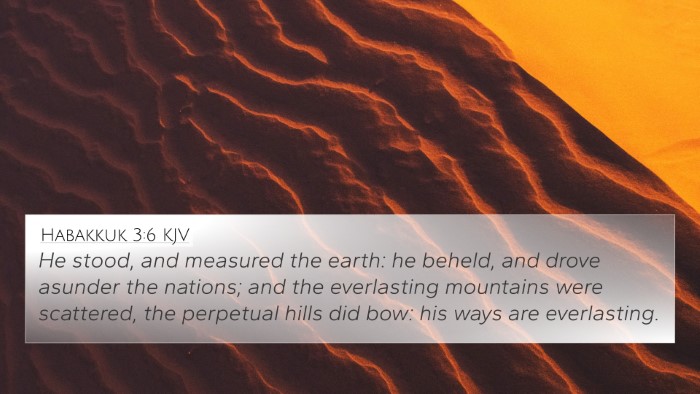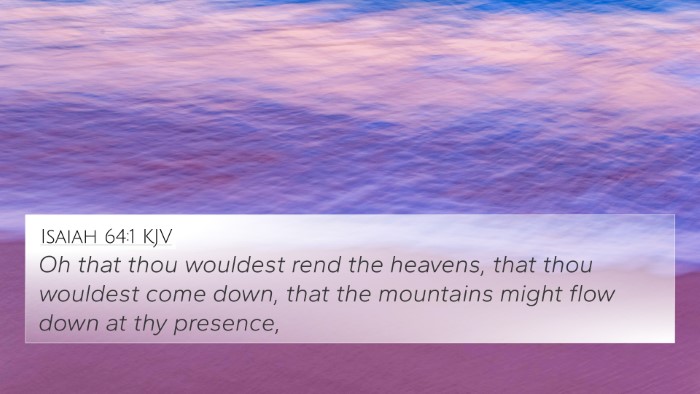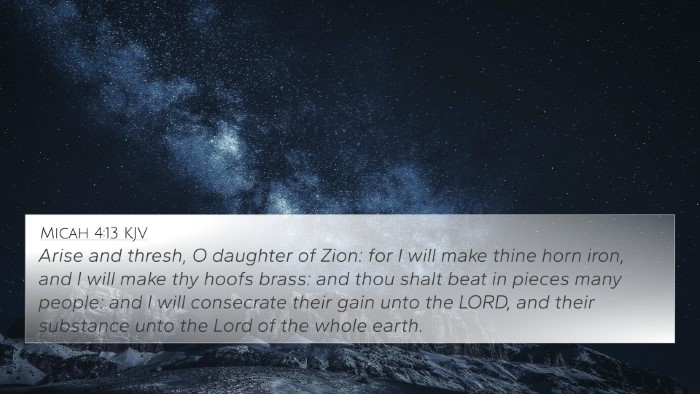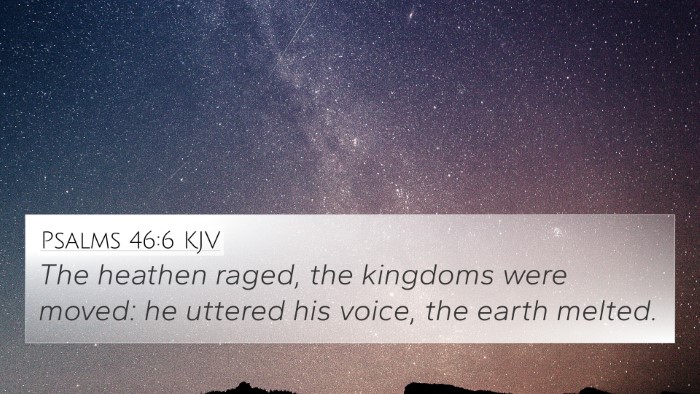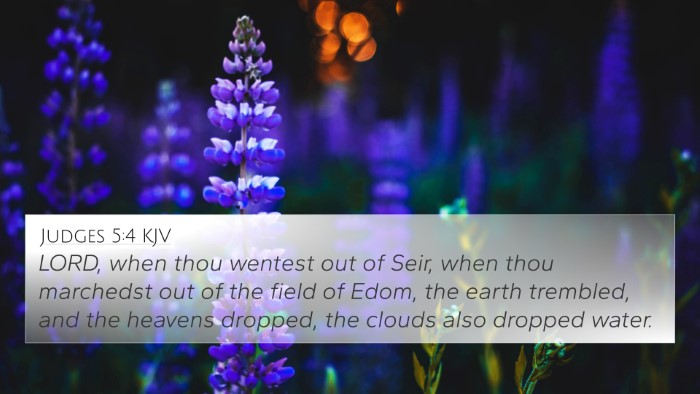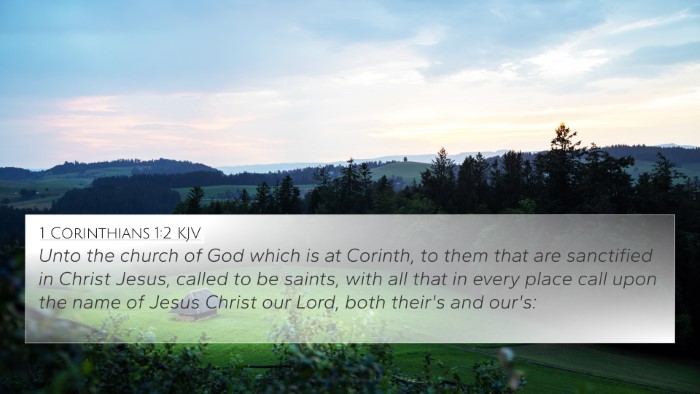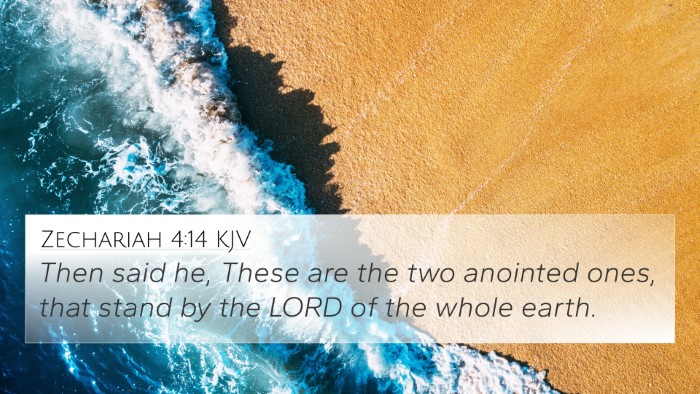Understanding Psalms 97:5
Psalms 97:5 states, "The hills melted like wax at the presence of the LORD, at the presence of the Lord of the whole earth." This verse conveys profound imagery and theology regarding God's overwhelming power and the transformative effect of His presence.
Verse Meaning and Commentary Insights
This Psalm is a declaration of God's majesty and authority. According to Matthew Henry, this verse symbolizes the Earth’s response to God's might, illustrating that even the most steadfast of natural formations, like hills, cannot withstand His presence. Hills, often seen as symbols of strength, are metaphorically depicted as melting, showing the unparalleled supremacy of God.
Albert Barnes emphasizes the omnipotence of God as He brings forth His judgment. The melting hills illustrate how the creation submits to the Creator, signifying that divine power can alter the very fabric of nature. This image exemplifies the theme of theophany—God revealing Himself in powerful and dynamic ways.
Adam Clarke elaborates that this verse calls to mind the imagery of divine retribution and the splendor of God when He manifests His glory on earth. The use of ‘melted like wax’ suggests a natural phenomenon that signifies both destruction and renewal, highlighting that God’s presence transforms and purifies.
Bible Verse Cross-References
Understanding Psalms 97:5 can be enriched by exploring the following cross-references:
- Exodus 19:18 - "And Mount Sinai was altogether on a smoke, because the LORD descended upon it in fire."
- Isaiah 64:1 - "Oh that you would rend the heavens and come down, that the mountains might quake at your presence!"
- Micah 1:4 - "And the mountains shall melt under him, and the valleys shall be cleft, as wax before the fire..."
- Hebrews 12:26 - "Yet once more I shake not the earth only, but also heaven."
- Revelation 20:11 - "And I saw a great white throne, and him that sat on it, from whose face the earth and the heaven fled away..."
- Psalm 68:2 - "As smoke is driven away, so drive them away: as wax melteth before the fire, so let the wicked perish at the presence of God."
- Job 14:16 - "For now you number my steps: do you not watch over my sin?"
Thematic Connections
The themes present in Psalms 97:5 resonate throughout the scriptures, reflecting God’s control over nature and a vivid reminder of His divine attributes. The melting of hills parallels stories of divine presence throughout the Bible:
- Divine Authority: This theme recurs from Genesis to Revelation, showcasing God’s control over creation.
- Transformation: God’s presence is a catalyst for change, a recurring motif seen in both the Old and New Testaments.
- Judgment and Mercy: The duality of God’s nature as just judge and merciful redeemer is reflected in the melting of hills.
Tools for Bible Cross-Referencing
To dive deeper into scriptural cross-referencing and thematic Bible analysis, here are some essential tools and methods:
- Bible Concordance: A comprehensive resource for finding scriptures related to specific words or themes.
- Bible Cross-Reference Guide: Offers contextual relations and thematic links between scriptures.
- Cross-Reference Bible Study: Engaging in systematic study methods to explore inter-Biblical dialogue.
- Identifying Connections: Use passages that correlate to find deeper meanings in the text.
Comparative Analysis
Comparative Bible verse analysis reveals the interconnectedness of God's word. Psalms 97:5, when viewed in relation to other verses like Isaiah 64:1, provides insight into how God's revelations evoke responses from creation. Such connections offer profound reflections on God's nature and His relationship with humanity.
Conclusion
Psalms 97:5 challenges believers to recognize the immense power of God and invites contemplation on His presence, authority, and transformative nature. Cross-referencing this verse with others broadens its meaning and enriches understanding. Explore the connections between the scriptures, and draw from the richly woven tapestry of divine revelation.
